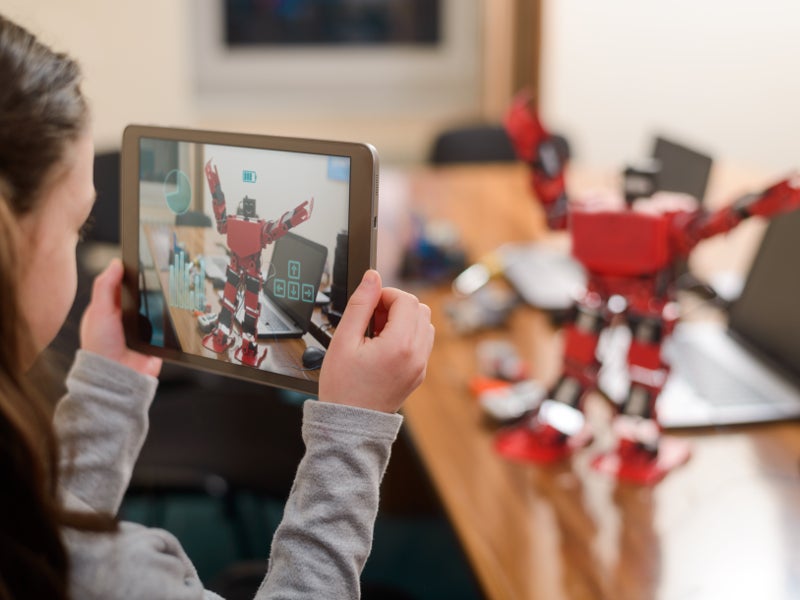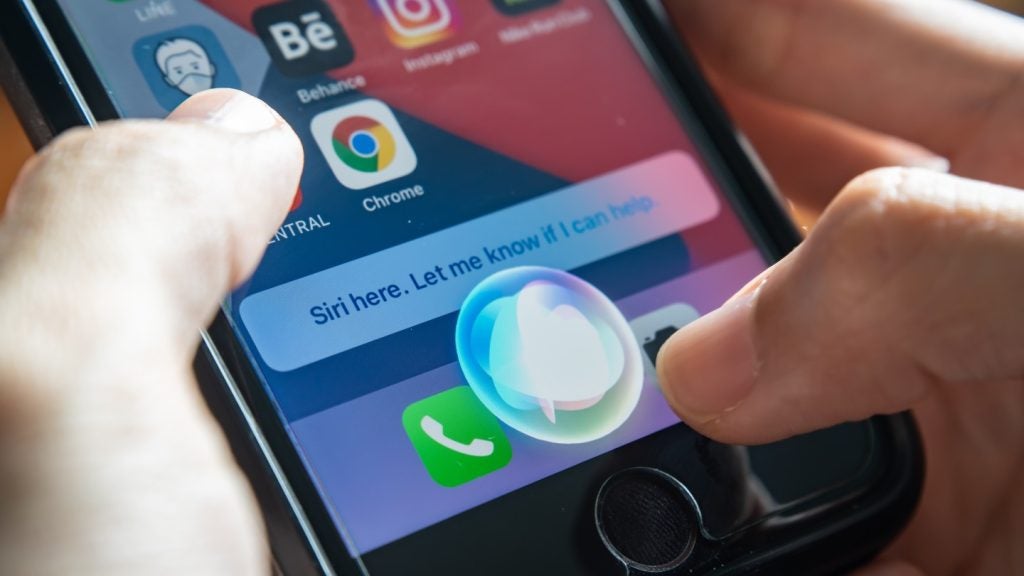Augmented reality (AR) is featuring with smartphone makers and social media firms. These are frontline adopters and developers of facial recognition, using it for device security and personalised entertainment (like Snapchat Filters). Makers of smart glasses are also taking an interest in facial recognition. However, privacy issues remain a concern, especially in the consumer market. That said, some enterprise-grade smart glasses are using facial recognition technology for specific functions.
Listed below are the leading media trends in augmented reality, as identified by GlobalData.
Social media
Several leading social media platforms allow users to add AR features to their content. For example, more than 70% of Snapchat’s 200 million daily active users access its AR lenses. This allows them to add AR filters to photos. Snapchat also offers a separate branding channel for businesses, called Shoppable AR. Here companies and influencers can display products through lenses. Facebook has also introduced AR features on Instagram and Messenger, while Tencent has integrated AR web pages on its WeChat Mini Program. TikTok, developed by China’s ByteDance, also allows AR filters and emojis to be added to user-generated content.
AR advertising
AR gives advertisers the ability to provide more inventive, eye-catching, and interactive experiences. This enables it to move beyond non-interactive media like print and TV. Brands like Pepsi and Lacoste have run campaigns in which smartphone cameras overlay virtual objects onto the real world. Likewise, Timberland, Sephora, L’Oréal, and Michael Kors have produced AR adverts for social media channels. Following Michael Kors’ AR campaign, the company experienced a 14% increase in sales for its Lon Aviators sunglasses. NIKE also benefited from a similar campaign on the Facebook Messenger platform. WebAR-based advertising campaigns are also emerging. In 2018, Saban’s Power Rangers campaign recorded a click-through rate of 2.1%, outpacing the then industry benchmark of 0.08%.
Gaming
AR gaming was worth over $2bn in 2018, and represented around 60% of annual AR revenues, according to GlobalData forecasts. Undoubtedly, gaming is one of the most fertile grounds for AR, but it has yet to establish itself in the mainstream. A 2019 Ericsson ConsumerLab report found that better and more immersive games and access to cheaper AR glasses would make AR games more interesting.
AR gaming has attracted investment from a wide range of sources. Netflix is launching an AR game in 2020, based on the successful TV series Stranger Things. Meanwhile, Sony has released an AR-based over-the-top (OTT) platform in India featuring games and quizzes. AR games featuring popular characters are also coming to market. Companies like Watty and Magic Leap are working on AR games featuring multiplayer modes and the ability to share game sessions on social media. The advent of 5G and developments around WebAR and AR cloud services has the potential to bring AR gaming to PCs and consoles.
Short form video
AR is a potentially exciting opportunity for short form video creators but is unlikely to be used in mainstream filmography in the short term. The technology is not yet capable of replacing traditional visual effects (VFX), although tech companies are using AR to create basic entertainment and educational experiences for their users. On YouTube, people can access virtual try-on videos, while Snapchat users can create AR mini-films, lasting 15 seconds. Hulu, Netflix, and AT&T are also using AR videos for content promotion. We anticipate a growth in adoption of short AR videos for advertising purposes over the next three years.
How well do you really know your competitors?
Access the most comprehensive Company Profiles on the market, powered by GlobalData. Save hours of research. Gain competitive edge.

Thank you!
Your download email will arrive shortly
Not ready to buy yet? Download a free sample
We are confident about the unique quality of our Company Profiles. However, we want you to make the most beneficial decision for your business, so we offer a free sample that you can download by submitting the below form
By GlobalDataMeanwhile, consolidation in this space is gaining pace. Verizon acquired Jaunt and its volumetric video capturing solutions in 2019, while Apple bought 3D motion capture specialist iKinema. Magic Leap snapped up Mimesys for volumetric video and telepresence solutions Niantic acquired Evertoon, a video and film making platform, in 2017..
This is an edited extract from the Augmented Reality – Thematic Research report produced by GlobalData Thematic Research.









Related Company Profiles
Sony Group Corp
Niantic Inc
Beijing ByteDance Technology Co Ltd
Magic Leap Inc
NIKE Inc